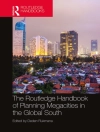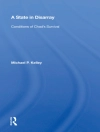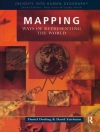‘Trading zone’ is a concept introduced by Peter Galison in his social scientific research on how scientists representing different sub-cultures and paradigms have been able to coordinate their interaction locally. In this book, Italian and Finnish planning researchers extend the use of the concept to different contexts of urban planning and management, where there is a need for new ideas and tools in managing the interaction of different stakeholders. The trading zone concept is approached as a tool in organizing local platforms and support systems for planning participation, knowledge production, decision making and local conflict management. In relation to the former theses of communicative planning theory that stress the ideals of consensus, mutual understanding and universal reason, the ‘trading zone approach’, outlined in this book, offers a different perspective. It focuses on the potentiality to coordinate locally the interaction of different stakeholders without requiring the deeper sharing of understandings, values and motives between them. Galison’s commentary comes in the form of the book’s final chapter.
Tabela de Conteúdo
Introduction.- Planning as Agonistic Communication in a Trading Zone – Re-examining Lindblom’s Partisan Mutual Adjustment.- “Trading Zone”: A Useful Concept for some Planning Dilemmas.- Ideas Competitions: Contemporary Urban Planning in Urban Regions and the Concept of Trading Zones.- Trading between Land Use and Transportation Planning – The Kuopio Model.- Soft GIS Development Process as a Trading Zone: Challenges in Implementing a Participatory Planning Support System.- A Neighbourhood Laboratory for the Regeneration of a Marginalized Suburb in Milano: Toward the Creation of a Trading Zone.- The Locality of Boundary Practices.-Trading with Enemies? The Trading Zone Approach in Successful Planning Processes in Sicily.- Place As Trading Zone. A Controversial Path of Innovation for Planning Theory and Practice.- Trading Zone and the Complexity of Planning.- Trading Zone as a Sensitizing Concept in Planning Research.-Conclusions and Afterthoughts.- Trading Plans.
Sobre o autor
Alessandro Balducci, Ph D, is professor of Planning and Urban Policies, and Vice-Rector of the Politecnico di Milano. He has been President of AESOP, and he is currently Chair of the Italian Society of Urbanists (SIU). He is responsible for the Strategic plan of the Province of Milan, and he is an advisor for plans and urban projects in Italy and abroad. He has been a Visiting Professor in various universities in France, Finland, China, USA and Switzerland. He has authored a number of books, articles and essays, related to strategic and participatory planning.
Raine Mäntysalo, DSc, is professor of strategic urban planning and Vice Head of the Department of Real Estate, Planning and Geoinformatics at Aalto University School of Engineering, Finland. Related to his professorship, his theoretical interests concentrate on pragmatist and dialectical planning theory and developmental planning research. His recent publications include research on the relationship between planning theory and democracy theory, agonism and power analytics in planning processes.












